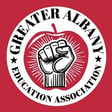
David Bellino
David Bellino began his career as a music video director-producer for various recording artists, management companies and record labels. During this time, Virgin Records selected Bellino to direct the Rolling Stones “Voodoo Lounge” interactive media title. He continued with Virgin as a production consultant on the band’s multimedia-enhanced ”Stripped” album. Bellino then became the creative force and producer behind a number of digital media products for Universal, MCA, EMI/Capitol and Hasbro. In 2013, he founded Left of Creative to expand creative and production services for corporate and government clients. This growth has resulted in improved communications within the U.S. Navy, Marine Corps and U.S Department of Justice through dynamic storytelling, documentary filmmaking, and digital media. Left of Creative remains a pioneer in virtual reality concepts, applications and production logistics. Bellino was one of the first filmmakers to showcase an immersive VR experience inside the cockpit of the F/A-18 aircraft and on the deck-plate of The Navy’s premier aircraft carrier USS Carl Vinson.
He’s an award-winning director-producer, having received Billboard accolades for his interactive media work. With a proven track record across industry sectors, his work has made an impact for Universal Pictures, Lionsgate, Sony, BMG, MCA, Shell, VISA, U.S. Navy, U.S. DOJ, NASA/JPL, Hasbro, Virgin and more. Bellino’s documentary film “The Guest List”, the story of America’s deadliest rock concert, was recently acquired for broadcast with a television premiere slated for early 2021 and a theatrical / VOD version in post-production in preparation for subsequent release. As a filmmaker and multimedia producer, Bellino continues his work for high profile clients and develops original documentary and unscripted programming.
https://www.independentri.com/news/article_4ad968b8-8f6f-11ec-a8b9-c39e27468280.html



















